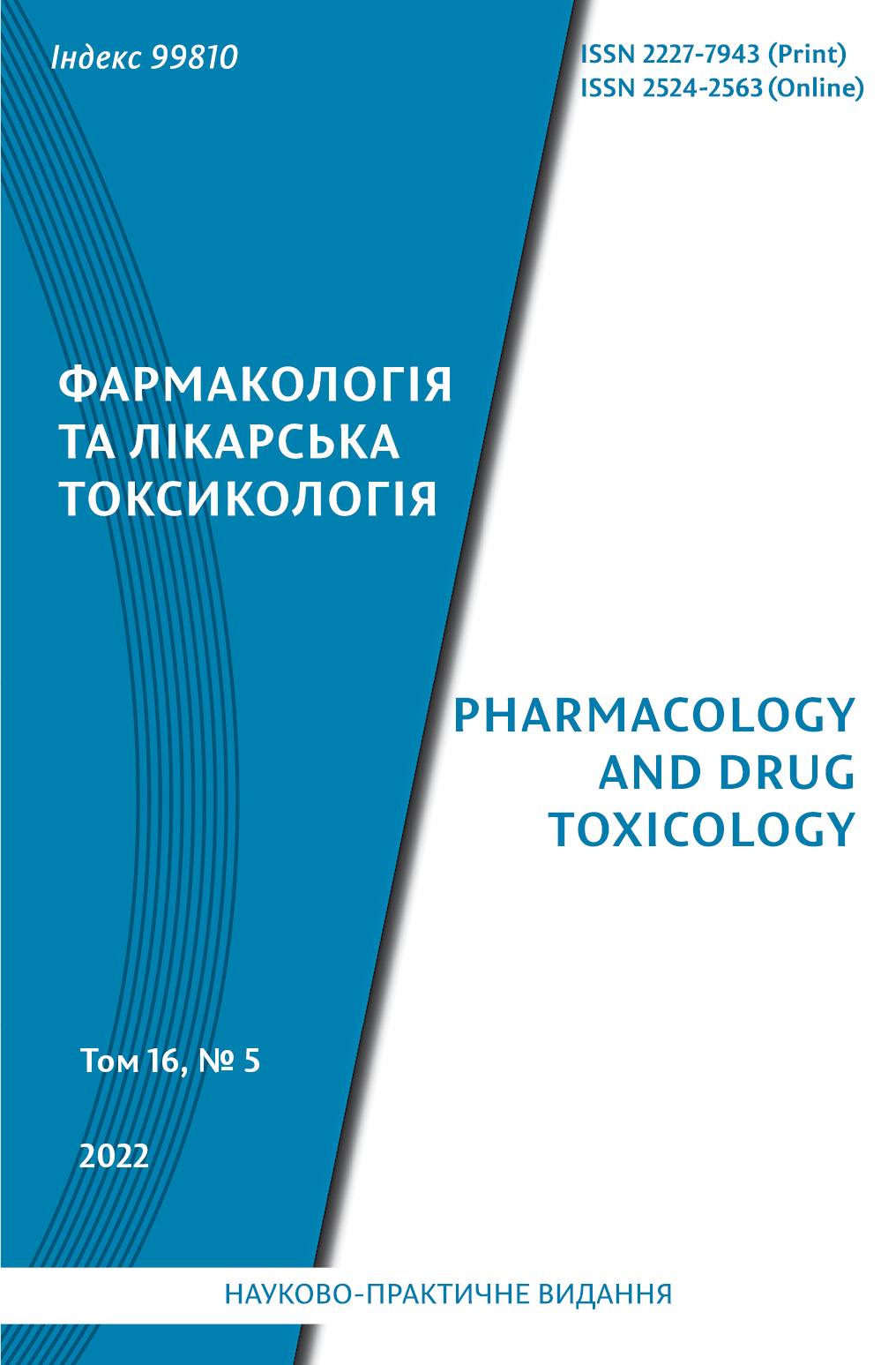Abstract
The aim of the study is to substantiate experimentally the expediency of omega-3 polyunsaturated fatty acids use for correction of free radical oxidation of lipids and proteins in the brain of rats with lead intoxication.
The study was carried out on 24 mature non-linear male rats weighing 250–280 g. The animals were randomly divided into three groups: group 1 – control; group 2 – animals with lead intoxication, modeled by intragastric administration of lead (II) acetate (7.5 mg/kg/day for 14 days); group 3 – animals with lead intoxication, which were treated with omega-3 polyunsaturated fatty acids (750 mg/kg/day, intragastrically) for 14 days. The activities of antioxidant enzymes such as superoxide dismutase and catalase as well as the levels of malondialdehyde and protein carbonyl groups were determined in brain homogenate and blood serum using the spectrophotometric method.
Results of this study showed that the long-term administration of lead (II) acetate led to decrease of superoxide dismutase and catalase activities by 28–35.8 % (р < 0,05), which was accompanied by an increase malondialdehyde and protein carbonyl groups contents in brain and blood serum of rats by 41.7–75.8 % (p < 0,05), compared to the control. Under these conditions, the use of omega-3 polyunsaturated fatty acids causes an increase antioxidant potential of brain and blood serum (activities of superoxide dismutase and catalase were by 19.2–30 % (р < 0.05) higher than those of untreated animals) and reduces free radical oxidation of lipids and proteins (the levels of malondialdehyde and protein carbonyl groups were lower by 16.6–34.8 % (p < 0.05) than in untreated animals).
Our findings clearly indicate the possibility of using omega-3 polyunsaturated fatty acids for the purpose of oxidative stress correction in brain of rats under lead intoxication.
